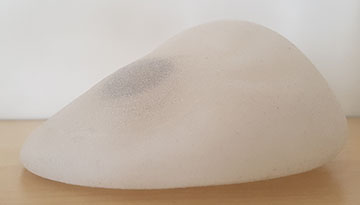What is Breast Augmentation Surgery?

Also known as augmentation mammoplasty, breast augmentation surgery involves using breast implants to fulfil your desire for fuller breasts (breast enlargement) or to restore breast volume lost after weight reduction or pregnancy (breast enhancement).
What You Should Know Before Breast Augmentation Surgery
The success and safety of your breast augmentation procedure depends very much on your being completely candid during your consultation. By being actively involved your consultation about breast augmentation, problems, concerns and questions you may have can be addressed by your Surgeon. You'll be asked a number of questions about your health, desires and lifestyle.
Be prepared to discuss:- · Why you want breast augmentation surgery, your expectations and desired outcome
- · Medical conditions, drug allergies and medical treatments
- · Use of current medications, vitamins, herbal supplements, alcohol, tobacco and drugs
- · Previous surgeries
- · Family history of breast cancer and results of any mammograms or previous biopsies
- · Evaluate your general health status and any pre-existing health conditions or risk factors
- · Examine your breasts, and may take detailed measurements of their size and shape, skin quality, placement of your nipples
- · Take photographs for your medical record
- · Discuss your options and recommend a course of treatment
- · Discuss likely outcomes of breast augmentation surgery and any risks or potential complications
- · Discuss the use of anaesthesia during your breast augmentation procedure
Preparing for Breast Augmentation Surgery
After researching the basics about breast enhancement or breast enlargement, many patients want to know what to expect before breast augmentation surgery.
Prior to breast surgery, your Surgeon may ask you to:- · Get lab testing or a medical evaluation
- · Take certain medications or adjust your current medications
- · Get a baseline mammogram before surgery and another one after surgery to help detect any future changes in your breast tissue
- · Stop smoking well in advance of your breast augmentation surgery
- · Avoid taking aspirin, anti-inflammatory drugs and herbal supplements as they can increase bleeding
- · What to do on the day of surgery
- · Post-operative care and follow-up
- · Breast implant registry documents (when necessary)
Important Facts about Breast Augmentation Risks and Complications
The decision to have breast augmentation surgery is extremely personal and you’ll have to decide if the benefits will achieve your goals and if the risks of breast implant safety and potential complications are acceptable.
Your plastic surgeon and/or staff will explain in detail the risks associated with surgery. You will be asked to sign consent forms to ensure that you fully understand the procedure you will undergo and any risks or potential complications.
The risks of breast implants and complications after breast augmentation include:- · Unfavourable scarring
- · Bleeding (hematoma)
- · Infection
- · Poor healing of incisions
- · Changes in nipple or breast sensation, may be temporary or permanent
- · Capsular contracture, which is the formation of firm scar tissue around the implant
- · Implant leakage or rupture
- · Wrinkling of the skin over the implant
- · Anaesthesia risks
- · Fluid accumulation
- · Blood clots
- · Pain, which may persist
- · Deep vein thrombosis, cardiac and pulmonary complications
- · Possibility of revision surgery
Although there potentially may be complications with breast implants, they do not impair breast health. Careful review of scientific research conducted by independent groups such as the Institute of Medicine has found no proven link between breast implants and autoimmune or other systemic diseases.
Other important considerations:- · Breast implants are not guaranteed to last a lifetime and future surgery may be required to replace one or both implants.
- · Pregnancy, weight loss and menopause may influence the appearance of augmented breasts over the course of your lifetime.
Many patients have questions about breast augmentation and recovery.
Although many factors are involved with determining your actual recovery time for breast augmentation, you will likely experience a post-surgical recovery period of 24 to 48 hours and an additional reduced-activity period of a few days, you will likely experience soreness and swelling for a few weeks.
Exercise and normal activity can resume at the direction of your plastic surgeon. Over time, post-surgical swelling will decrease and incision lines will fade.
You will be given specific instructions that may include: How to care for your breasts following breast augmentation surgery, medications to apply or take orally to aid healing and reduce the risk of infection, and when to follow-up with your plastic surgeon.
Be sure to ask your plastic surgeon specific questions about what you can expect during your individual recovery period.
- · Where will I be taken after my surgery is complete?
- · What medication will I be given or prescribed after surgery?
- · Will I have dressings/bandages after surgery?
- · Are stitches removed? When?
- · When can I resume normal activity and exercise?
- · When do I return for follow-up care?
If you experience shortness of breath, chest pains, or unusual heart beats, seek medical attention immediately. Should any of these complications occur after breast augmentation, you may require hospitalization and additional treatment.
The practice of medicine and surgery is not an exact science. Although good results are expected, there is no guarantee. In some situations, it may not be possible to achieve optimal results with a single surgical procedure and another surgery may be necessary.
Be carefulFollowing your physician’s instructions is key to the success of your surgery. It is important that the surgical incisions are not subjected to excessive force, abrasion, or motion during the time of healing. Your doctor will give you specific instructions on how to care for yourself.